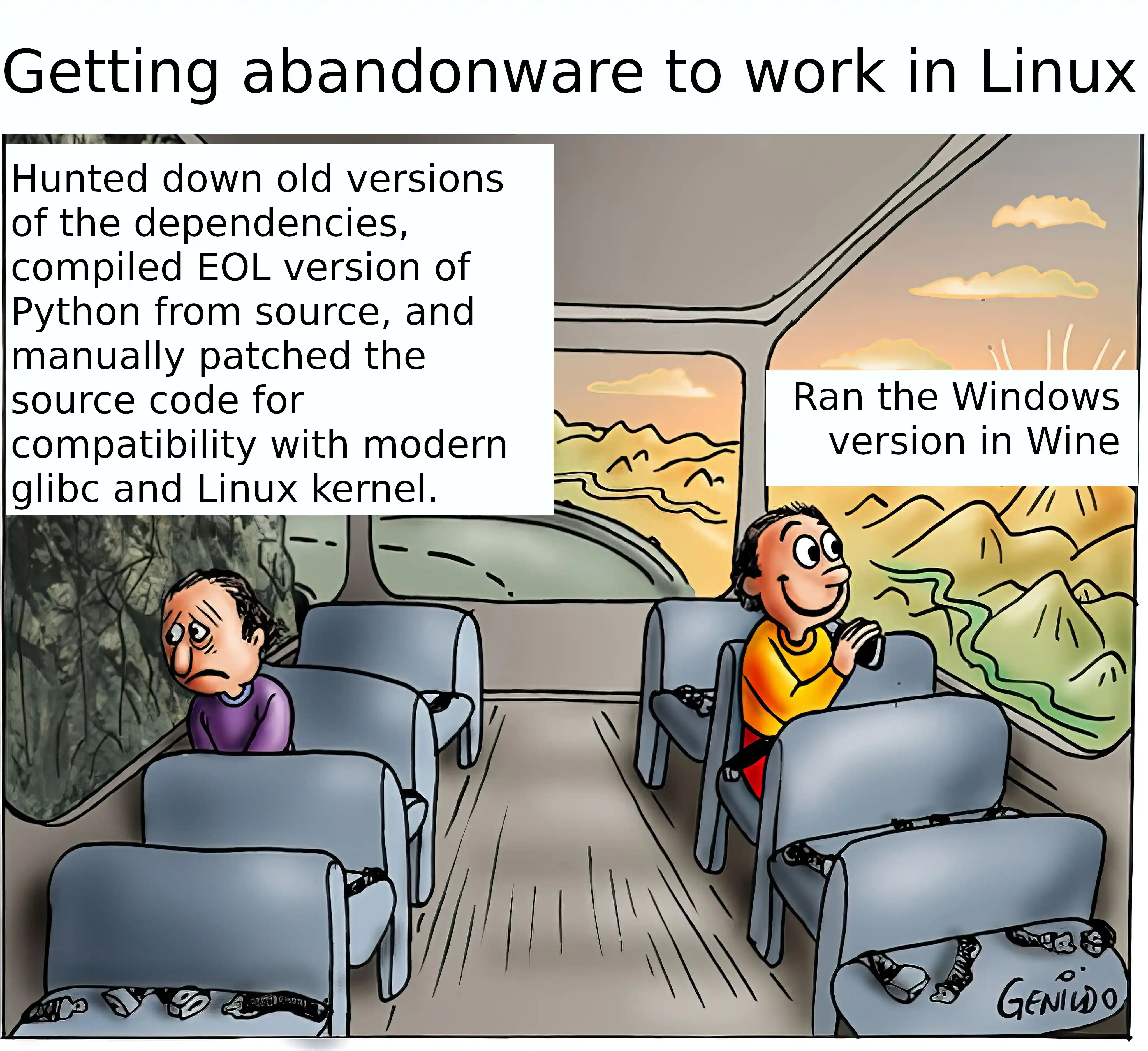this post was submitted on 23 Jan 2024
537 points (98.6% liked)
linuxmemes
21272 readers
598 users here now
Hint: :q!
Sister communities:
- LemmyMemes: Memes
- LemmyShitpost: Anything and everything goes.
- RISA: Star Trek memes and shitposts
Community rules (click to expand)
1. Follow the site-wide rules
- Instance-wide TOS: https://legal.lemmy.world/tos/
- Lemmy code of conduct: https://join-lemmy.org/docs/code_of_conduct.html
2. Be civil
- Understand the difference between a joke and an insult.
- Do not harrass or attack members of the community for any reason.
- Leave remarks of "peasantry" to the PCMR community. If you dislike an OS/service/application, attack the thing you dislike, not the individuals who use it. Some people may not have a choice.
- Bigotry will not be tolerated.
- These rules are somewhat loosened when the subject is a public figure. Still, do not attack their person or incite harrassment.
3. Post Linux-related content
- Including Unix and BSD.
- Non-Linux content is acceptable as long as it makes a reference to Linux. For example, the poorly made mockery of
sudoin Windows. - No porn. Even if you watch it on a Linux machine.
4. No recent reposts
- Everybody uses Arch btw, can't quit Vim, and wants to interject for a moment. You can stop now.
Please report posts and comments that break these rules!
founded 1 year ago
MODERATORS
you are viewing a single comment's thread
view the rest of the comments
view the rest of the comments

There's pros and cons. On one hand, packing your dependencies into your executable leads to never having to worry about broken dependencies, but also leads you into other problems. What happens when a dependency has a security update? Now you need an updated executable for every executable that has that bundled dependency. What if the developer has stopped maintaining it and the code is closed source? Well, you are out of luck. You either have the vulnerability or you stop using the program. Additionally bundling dependencies can drastically increase executable size. This is partially why C programs are so small, because they can rely on glibc when not all languages have such a core ubiquitous library.
As an aside, if you do prefer the bundled dependency approach, it is actually available on Linux. For example, you can use appimages, which are very similar to a portable exe file on windows. Of course, you may run afoul of the previously mentioned issues, but it may be an option depending on what was released.
Do you happen to know what (if any?) technical advantages appimage has over "portable" applications (i.e. when the app is distributed as a zipped directory containing the executable, libraries, and all other resources)"? As far as I understand, appimage creates an overlay filesystem that replaces/adds your system libraries with the libraries that the packaged app needs? But why would that be necessary if you can just put them in a folder along with the executable and override
LD_LIBRARY_PATH?Thanks